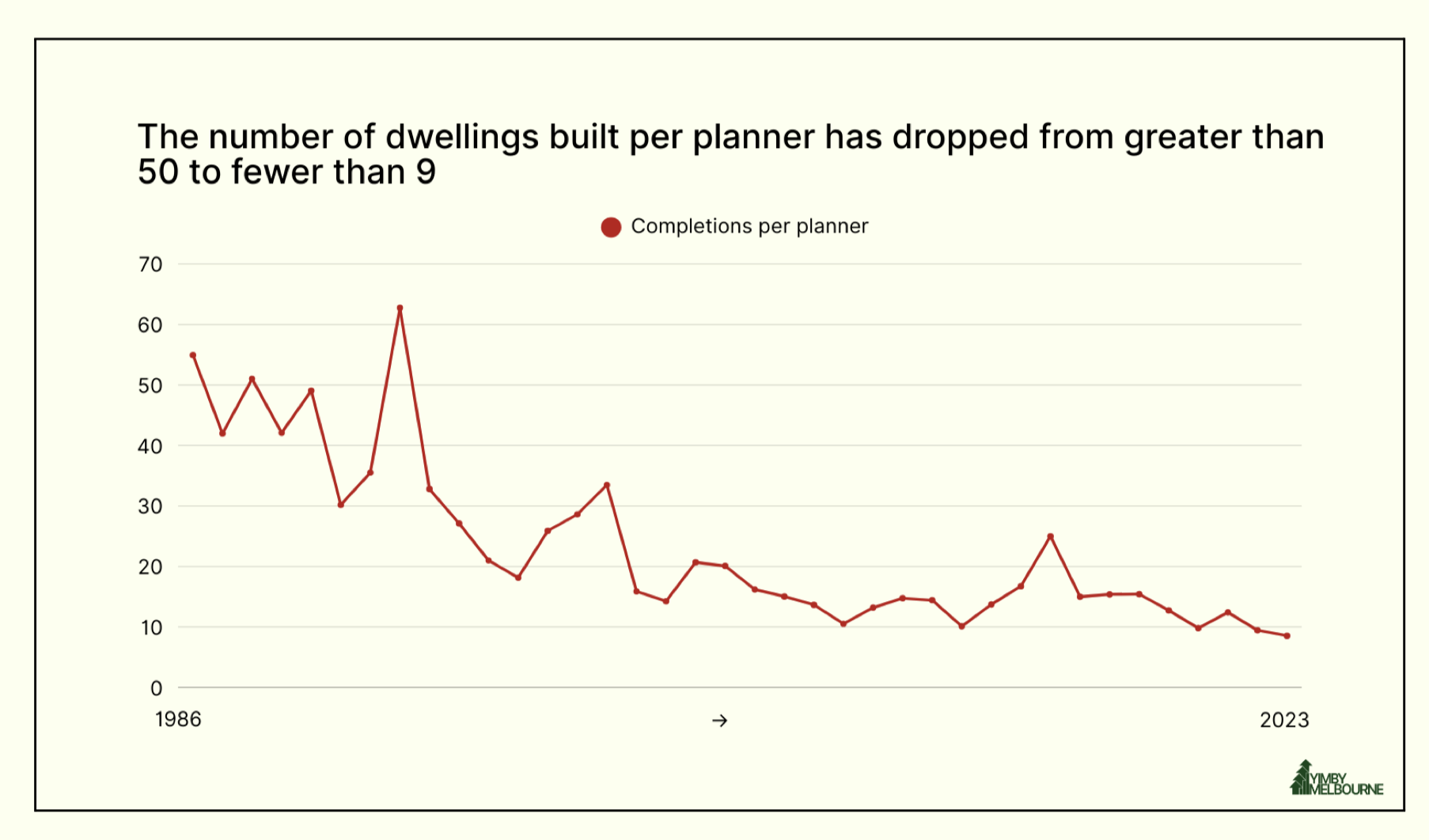

Read the Planning Institute's response
The Planning Institute of Australia's response to YIMBY Melbourne's research demonstrates exactly why our planning system is broken.
The PIA continues to prioritise the complexity of the system over and above the outcomes it produces.
Rather than address our core finding—that planner productivity has collapsed from 54 homes per planner in 1986 to fewer than 9 today—the PIA calls for more of the same: more planners to manage more complexity.
The PIA claims planning has become more complex, pointing to apartments replacing detached houses. But this doesn't explain why planner productivity has collapsed six times more than construction worker productivity over the same period. If complexity was the issue, we'd see similar declines across both sectors.
In the 1960s, the planning process to build a 3-storey apartment building was just a few pages. Today, it's in the hundreds.
The PIA's response conspicuously avoids addressing our key findings:
Instead, the PIA deflects to approved-but-unbuilt projects—a symptom of the very system they defend. When permits take 371 days and require armies of consultants, of course projects become unviable.
Planning is essential to correct for market failures—we do not dispute this. But the current planning system is defined by process rather than delivery. So long as planning fails to measure the outcomes of its interventions, this will never improve.
By arguing that more process can be used to justify ever-more planners, the PIA inadvertently proves our thesis. The planning system has become a self-perpetuating bureaucracy that measures success by process, not homes delivered.
South Australia's system shows that the number of planners is not the binding constraint. If NSW planners matched their South Australian counterparts' productivity, the state would build an additional 33,403 homes annually.
"The PIA's response is a masterclass in missing the point. We never said there are 'too many planners'—we said each planner is delivering 85% fewer homes than 40 years ago. That's not a labour shortage, it's a productivity catastrophe."
"When conservative planners argue we need more planners to manage more complexity, they're describing the disease as if it's the cure. The solution isn't hiring one in 50 working Australians as planners—it's fixing the system that turned planning from enabling homes to preventing them."
"PIA claims planners want simpler, faster assessment processes. Great—so why are they defending a system that's made permits seven times slower?"